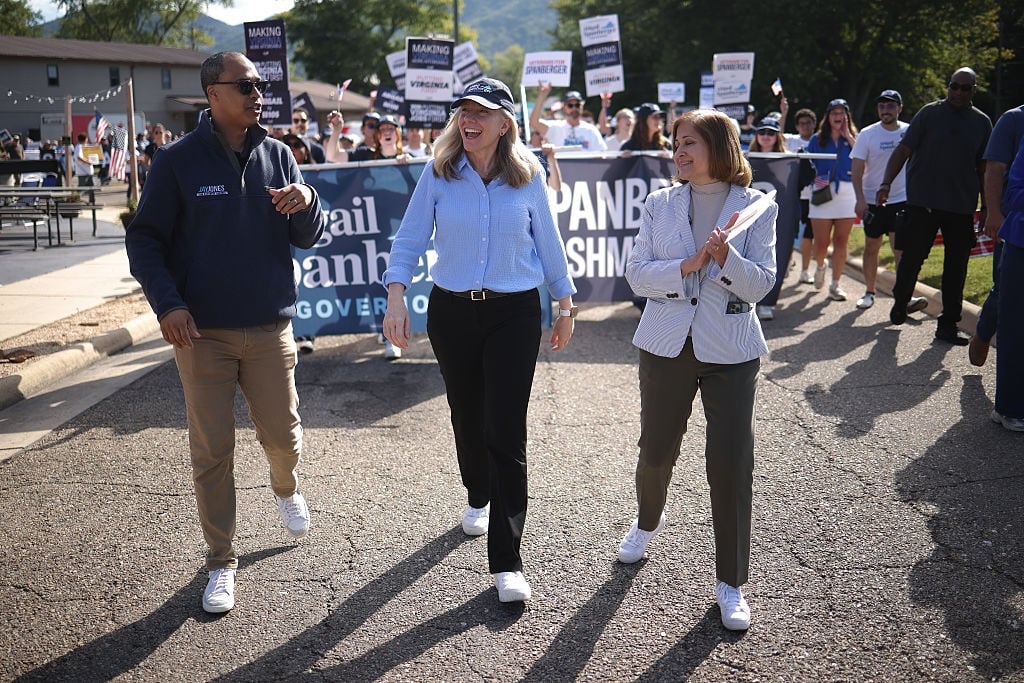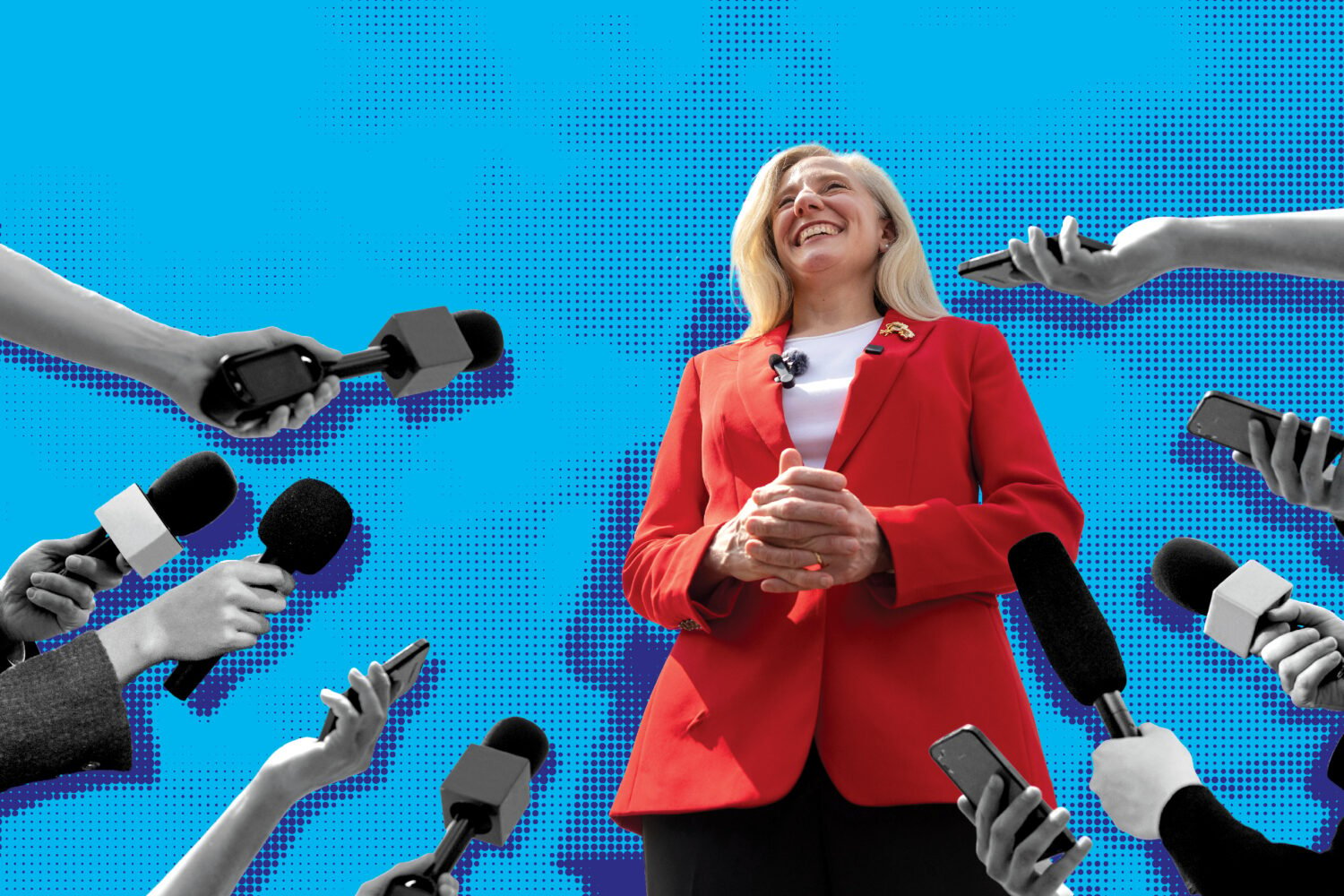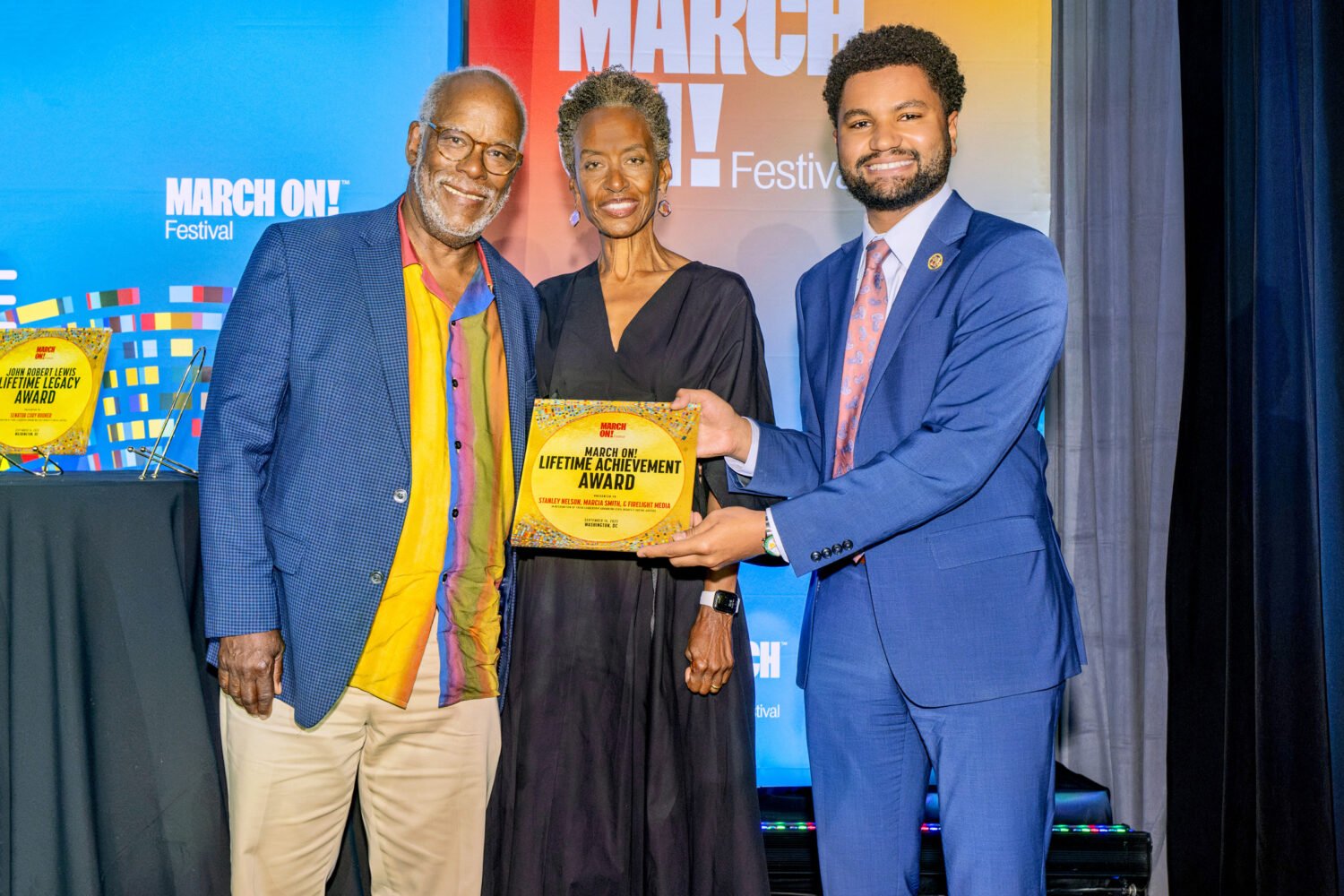A month ago, Democrats looked poised to sweep Virginia’s top offices. Polls showed Abigail Spanberger leading comfortably in the governor’s race, with Jay Jones holding a solid edge over Republican Attorney General Jason Miyares.
But in politics, a few weeks can be an eternity.
Since early October, Jones has been fighting for his political life following revelations that he exchanged violent, profanity-laced text messages with Republican Delegate Carrie Coyner in 2022 that targeted then House Speaker Todd Gilbert. The scandal has dominated headlines, turning what once looked like a clear Democratic advantage into one of the closest statewide contests on the ballot.
Polls that had Jones up by several points over Republican incumbent Jason Miyares now show Miyares tied or narrowly ahead. In almost any other year, analysts say, a scandal this severe would have ended Jones’s campaign. But in today’s polarized environment—and with Spanberger’s growing popularity—they say he still has a path.
“Jones’s fate is dependent on Spanberger winning by double digits or close to double digits for him to have a chance,” says longtime political analyst Bob Holsworth, managing partner at the Richmond consulting firm DecideSmart.
In recent weeks, Holsworth says, Republicans have concentrated on protecting Miyares and keeping Jones on defense, portraying him as soft on crime, then resurfacing a reckless-driving ticket, and amplifying the text scandal to define his candidacy.
“It’s been a very effective campaign,” he says.
Holsworth expects the fallout to hit hardest among suburban and moderate Democrats, particularly around Richmond and Hampton Roads, where Miyares’s Virginia Beach roots could help him peel off voters. “There’s some Democrats who will vote for Spanberger and vote for Miyares as well,” Holsworth says. “They can’t stand Trump, they like Spanberger, but they’re morally repulsed by what happened with Jones.”
A split ticket?
An increasingly likely scenario is that Democrats win at the top of the ticket but lose down-ballot—something that hasn’t happened in Virginia since 2005, when Democrat Tim Kaine won the governorship while Republicans Bill Bolling and Robert McDonnell captured the lieutenant governor and attorney general offices.
But this year could break that two-decade streak.
“Before the Jones text story broke, it was reasonable to call Miyares an underdog, but now it’s more of a toss-up,” says J. Miles Coleman, associate editor of Sabato’s Crystal Ball at the University of Virginia Center for Politics. “The ‘swing’ voters in the AG race, to me, are going to be those that are backing Spanberger but have some reservations about Jones.”
Coleman says Jones has tried to nationalize the race by linking Miyares to Donald Trump, betting that negative partisanship will keep uneasy Democrats in line. “Those soft Spanberger voters might not like Jones’s texts,” he says, “but would they pass up a chance to stick it to Trump and the Republicans?”
Still, Coleman cautions, Jones’s chances hinge almost entirely on Spanberger’s performance. “If she wins comfortably, that could be enough to carry Jones and the rest of the Democratic ticket,” he says. “But if she wins by only four or five points, he’s in real trouble.”
Because the race has tightened so much, Jeremy Mayer, a political scientist at George Mason University, says a split outcome—with Spanberger winning and Miyares holding on—is now entirely plausible.
“Jones’s best hope is to hold on and hope that the statewide tide against national politics pulls him over the finish line,” he says.
Democrats’ dilemma
The controversy has also laid bare a deeper divide in how each party handles scandal. As Mayer says, “Democrats have less partisan unity in the face of scandals than Republicans have in the age of Trump.”
He compares Jones’s predicament to how Democrats pressured then US Senator Al Franken to resign after sexual misconduct allegations surfaced in 2017, while Republicans rallied around Donald Trump following the Access Hollywood tape.
“On the scale of what’s tolerated in Trump,” Franken’s allegations are the equivalent of “jaywalking,” Mayer says. Democrats have shown a history of saying, ‘Nope, that’s unacceptable. Get out.’ Republicans have less of that lately.”
Stephen Farnsworth, professor of political science and international affairs at the University of Mary Washington, says the texts were shocking even by the jaded standards of modern politics and may have crossed a moral line that many Democrats—and Democratic-leaning independents—will find hard to ignore.
“Jones has said some horrible things, and we’ll see if the voters find his behavior unforgivable,” Farnsworth says. “Even so, I expect some Democrats will leave the AG line blank, which reduces the chances that Jones will win.”
But unlikely doesn’t mean impossible, he says. “One can never say never in politics these days. Behavior that would have been unacceptable in a political candidate 30 years ago seems hardly to raise an eyebrow with many voters today.”
During last week’s Virginia attorney general debate, Jones sought to contain the fallout by taking responsibility for the texts, calling his messages “shameful,” and pivoting to tie Miyares as closely as possible to Trump.
Farnsworth says Jones’s approach—a blend of contrition and counterattack—follows a familiar political playbook. “It reminds me of President Clinton’s handling of the [Monica] Lewinsky scandal,” he says. “He apologized and then refocused on Republicans.”
Whether voters absolve Jones, Farnsworth says, will reveal much about how far forgiveness—and party loyalty—can stretch in Virginia politics today.


















